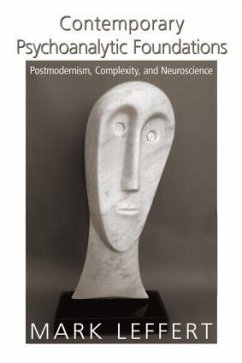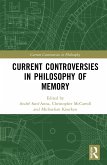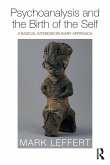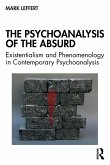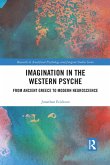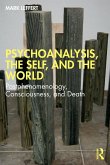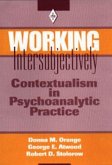Past scholars have tried to classify psychoanalysis as an intrinsically positivist science, with varying degrees of success. Their critics have fared little better with narrow applications of postmodern thought, which focus on smaller areas within psychoanalysis and, as a result, neglect the evolution of the discipline as a whole.
In an effort to provide a ground for current psychoanalytic thought, Mark Leffert creates an interreferential schema which balances the influences of postmodernism, complexity theory, and neuroscience as its key factors. Using the heterogeneity of postmodern thought as a starting point, he traces its impact on and implications for the development of the discipline, leading into the realm of complexity theory - which is relatively new to the psychoanalytic literature - and how it informs as well as constrains certain psychoanalytic assumptions. The book then turns to neuroscience, the "hard" scientific study of the complexities of the brain, and how recent research informs psychoanalytic theory and may shed light on aspects of memory, the conscious, and the unconscious. Taken together, these three elements create a firm basis for the current trends in psychoanalysis and the direction of its development in the years to come.
In an effort to provide a ground for current psychoanalytic thought, Mark Leffert creates an interreferential schema which balances the influences of postmodernism, complexity theory, and neuroscience as its key factors. Using the heterogeneity of postmodern thought as a starting point, he traces its impact on and implications for the development of the discipline, leading into the realm of complexity theory - which is relatively new to the psychoanalytic literature - and how it informs as well as constrains certain psychoanalytic assumptions. The book then turns to neuroscience, the "hard" scientific study of the complexities of the brain, and how recent research informs psychoanalytic theory and may shed light on aspects of memory, the conscious, and the unconscious. Taken together, these three elements create a firm basis for the current trends in psychoanalysis and the direction of its development in the years to come.
"Formidable! I was very impressed, not just by Leffert's fantastic erudition but by the integration of his concept of the myriad problems surrounding the construct of consciousness. I was further impressed by his distinction between 'emergent' and 'epiphenomenon,' his concepts of 'noetic' and 'autonoetic,' and his favorable account of Jaynes and the early dominance of the right hemispheric speech area. I'm going to have to read this book over and over again - it is as marvelous as it is useful and has answered a lot of questions I have long nursed." - James S. Grotstein, M.D., Training and Supervising Analyst, Psychoanalytic Center of California and New Center for Psychoanalysis
"Just as Freud built psychoanalysis on the science and philosophy of his day, contemporary psychoanalysts are building on today's science and philosophy. Analysts are challenged to understand emerging knowledge in fields like postmodernism, complexity theory, and nonlinear dynamics. We also need to understand their relationship to psychoanalysis. Mark Leffert deftly guides readers through these ideas. He makes complex concepts clear and precise without sacrificing accuracy or critical evaluation. Contemporary Psychoanalytic Foundations effectively demonstrates how the worldviews of postmodern thought and complexity theory are reshaping psychoanalytic theory and practice. I highly recommend this guide to all who want to explore the future of psychoanalysis." - Robert M. Galatzer-Levy, M.D., Training and Supervising Analyst, Chicago Institute for Psychoanalysis
"Mark Leffert, an outstanding theorist of our present time, as well as a training psychoanalyst, offers us orientation and guidance as we attempt to move from the tainted past (modernism) to some comprehension of the unfamiliar and seemingly radical approaches of the present (postmodernism). Leffert himself writes with admirable clarity and makes this arduous journey extremely worthwhile. Reading this book is a journey that will enrich and change assumptions in the reader's mind." - Marianne Horney Eckardt, M.D., Journal of the American Academy of Psychoanalysis
"Just as Freud built psychoanalysis on the science and philosophy of his day, contemporary psychoanalysts are building on today's science and philosophy. Analysts are challenged to understand emerging knowledge in fields like postmodernism, complexity theory, and nonlinear dynamics. We also need to understand their relationship to psychoanalysis. Mark Leffert deftly guides readers through these ideas. He makes complex concepts clear and precise without sacrificing accuracy or critical evaluation. Contemporary Psychoanalytic Foundations effectively demonstrates how the worldviews of postmodern thought and complexity theory are reshaping psychoanalytic theory and practice. I highly recommend this guide to all who want to explore the future of psychoanalysis." - Robert M. Galatzer-Levy, M.D., Training and Supervising Analyst, Chicago Institute for Psychoanalysis
"Mark Leffert, an outstanding theorist of our present time, as well as a training psychoanalyst, offers us orientation and guidance as we attempt to move from the tainted past (modernism) to some comprehension of the unfamiliar and seemingly radical approaches of the present (postmodernism). Leffert himself writes with admirable clarity and makes this arduous journey extremely worthwhile. Reading this book is a journey that will enrich and change assumptions in the reader's mind." - Marianne Horney Eckardt, M.D., Journal of the American Academy of Psychoanalysis

